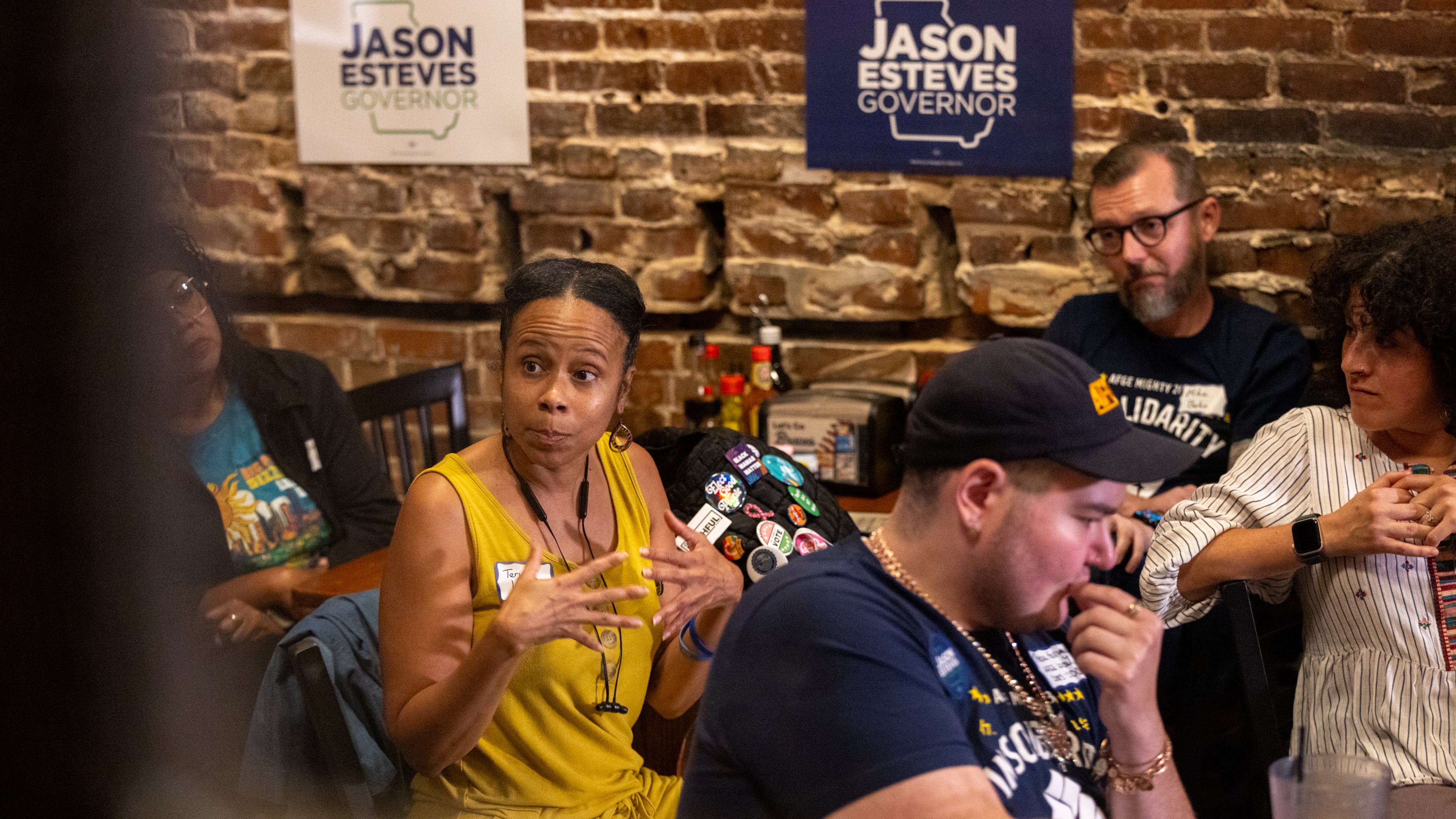Furloughed CDC workers raced to get work done before shutdown

As Congress prepared to shut down the government Sept. 30, Centers for Disease Control and Prevention employees worked like mad to get grant funding for 38 new state and local cancer prevention programs out the door.
Then, before they could guide the states through setting up and running the programs, they were furloughed.
“We were going to have our kickoff call (with the 38 recipients) October 2,” said Teri Larkins, one of those furloughed employees. At the office where she would normally be working, she said: “We’ve got two people in place of what should be about 35.”
Larkins was one of several furloughed CDC workers who spoke at a public roundtable event Friday following the furloughs. They all emphasized they were speaking for themselves personally, not for the CDC.
The federal government shutdown has put about two-thirds of the Atlanta-based CDC’s staff on leave, with no immediate resolution in sight.
Together with a smaller sister agency — the Agency for Toxic Substances and Disease Registry — the federal government estimated about 8,700 workers will be furloughed. A minor portion of them were already in the process of being laid off.

While federal government officials said the remaining 4,900 workers will continue to respond to urgent disease outbreaks, workers emphasized that many of the divisions that protect Americans’ health have already been drastically hollowed out — from the Elon Musk-led Department of Government Efficiency mass firings, to the more orderly layoffs of spring and summer.
Some of the workers left said they are so stressed and exhausted from taking on extra burdens that they needed the rest, but are weighing that against the work they know won’t get done.
On the one hand, said Tamekia Evans: “I feel like we’re being used as a pawn” in politicians’ fight over the federal budget. On the other, she said: “My oath of office is to serve the health of the public,” and the cuts at the heart of the political fight could harm public health.
The roundtable was held by Sen. Jason Esteves, who is running for the Democratic nomination for Georgia governor. Democrats and Republicans are in a daily war to blame the shutdown on the other party.
“All 50 States Will See Devastating Economic Hit in Democrat Shutdown,” read a press release from the White House issued the same day as the roundtable.
“GOP Shutdown ... Raises Health Care Costs for Georgians,” said a Democratic Governors’ Association press release.
The biggest roadblock between them is Republicans refusal to extend “enhanced” subsidies that make premiums affordable for millions of Affordable Care Act insurance policyholders. When they expire Dec. 31, and other GOP changes go into effect, about 460,000 Georgians are expected to drop health insurance and go uninsured.
And Democrats are refusing to vote in favor of the budget unless they are extended.

Other laid off, retired, and fired CDC employees who spoke at the event hardly mentioned the budget stalemate. They vented about years of public health experience lost as scientists were forced into retirement or are now trying to find other jobs.
Evans talked about all that — trying to work amid chaos and working in risk management at the CDC without leadership orders. She knows she’ll be tasked with protecting the CDC from risks associated with artificial intelligence and has been studying up.
Evans said she was told she had to return to the office in spite of her official accommodations allowing to work from home for health reasons.
Evans said one thing the furlough has done: It’s been the tipping point for her to speak up, after months of staying quiet.



